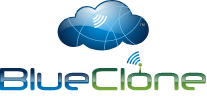
Best practices for remote desktop access
Remote desktop access is an essential in these days when businesses are expected to be responsive to their clients almost 24/7. Moreover, there has been a surge in the remote desktop access practice with coronavirus pandemic. But, did you know that remote desktop access, while almost indispensable now, can threaten your network security? In this post, we discuss a few best practices that you should engage in for safe remote desktop access.Have your basics in place
Make sure your security basics are covered. Your systems should be secured with the latest Firewalls, anti-malware software and up-to-date with all security patches and software upgrades. Another item on this list is passwords. Make sure you are following good password hygiene such as no password sharing, setting secure passwords, not repeating passwords, etc.,
Train your employees
Train your employees who will be accessing your network via remote desktop connections to identify cyber security threats and steer clear from them. Educate them to identify phishing links, clone sites, dubious attachments, etc.,
Use multi-factor authentication
Multi-factor authentication adds a layer to security and is especially important in case of remote desktop authorization. Multi-factor authentication works by confirming the identity of the user across 3 areas–what they know, what they have and who they are. . User IDs, passwords, secret questions, date of birth, etc., fall in the first category (What they know), while OTPs sent to their smartphone, a physical token or an access card belong to the second category (What they have) and the third category (Who they are) includes biometric authentication such as retina scan, fingerprint or voice recognition.
Limit access wherever possible by deploying Cloud solutions
To a certain extent, the Cloud is a good alternative to remote desktops and more secure. So you can opt for the Cloud-based setup wherever possible and limit remote desktop access to those to absolutely need it.
Remote desktop security strategy formulation and implementation is tedious, but necessary. You can ask your MSP to assist you with remote desktop security strategy implementation. An MSP who is well versed in cybersecurity measures will be able to do this for you. At the same time, don’t forget to inquire about possible Cloud based alternatives to remote desktop access.





